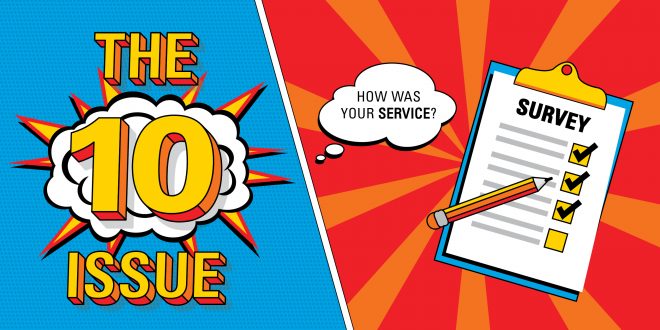Surveys can be vital tools to get customers’ feedback, verify employee training is working and encourage positive change. Russ Haswell from Medallia, a company that helps businesses collect and use customer and employee feedback, contributes insight into how surveys can make your business a champion.
1. Getting baseline numbers.
How many new and repeat customers are you getting? Do you know why shoppers leave without buying? If you don’t have data, you won’t know what to improve or when it improves.
2. Deepening customer loyalty.
If you ask shoppers how you can better serve them, you communicate that you care about them, Haswell says.
3. Fighting to improve your price image.
You won’t know if your pricing is competitive unless you ask. Get your customers’ thoughts using the survey at TheRedT.com/pricing-survey.
4. Helping staff perform better.
Positive feedback encourages workers to continue doing what they do well, but also make changes based on occasional negative feedback without getting discouraged, Haswell says.
5. Challenging your own assumptions.
Ask customers what they think of products and programs. You may discover you’re not promoting them well if shoppers don’t know about them.
6. Strengthening employee loyalty.
Surveying employees about problems in the business or soliciting suggestions for how to improve shows employees that they matter to you.
7. Starting key conversations.
If you ask customers a few questions, you may be surprised by how quickly they open up with more information than you ask for. You can’t fix problems you don’t know exist.
8. Reinforcing company values.
Customer feedback, be it positive or negative, offers opportunities to talk with employees about what matters to you as a retailer, Haswell says.
9. Creating meaningful interactions.
A paper or digital survey offers an unobtrusive way to ask every shopper how your operation is doing, not just hear from outspoken regulars.
10. Guiding training.
Open-ended questions on a customer survey help gather meaningful feedback for the type of training individual employees need, Haswell says.
 Hardware Retailing The Industry's Source for Insights and Information
Hardware Retailing The Industry's Source for Insights and Information








